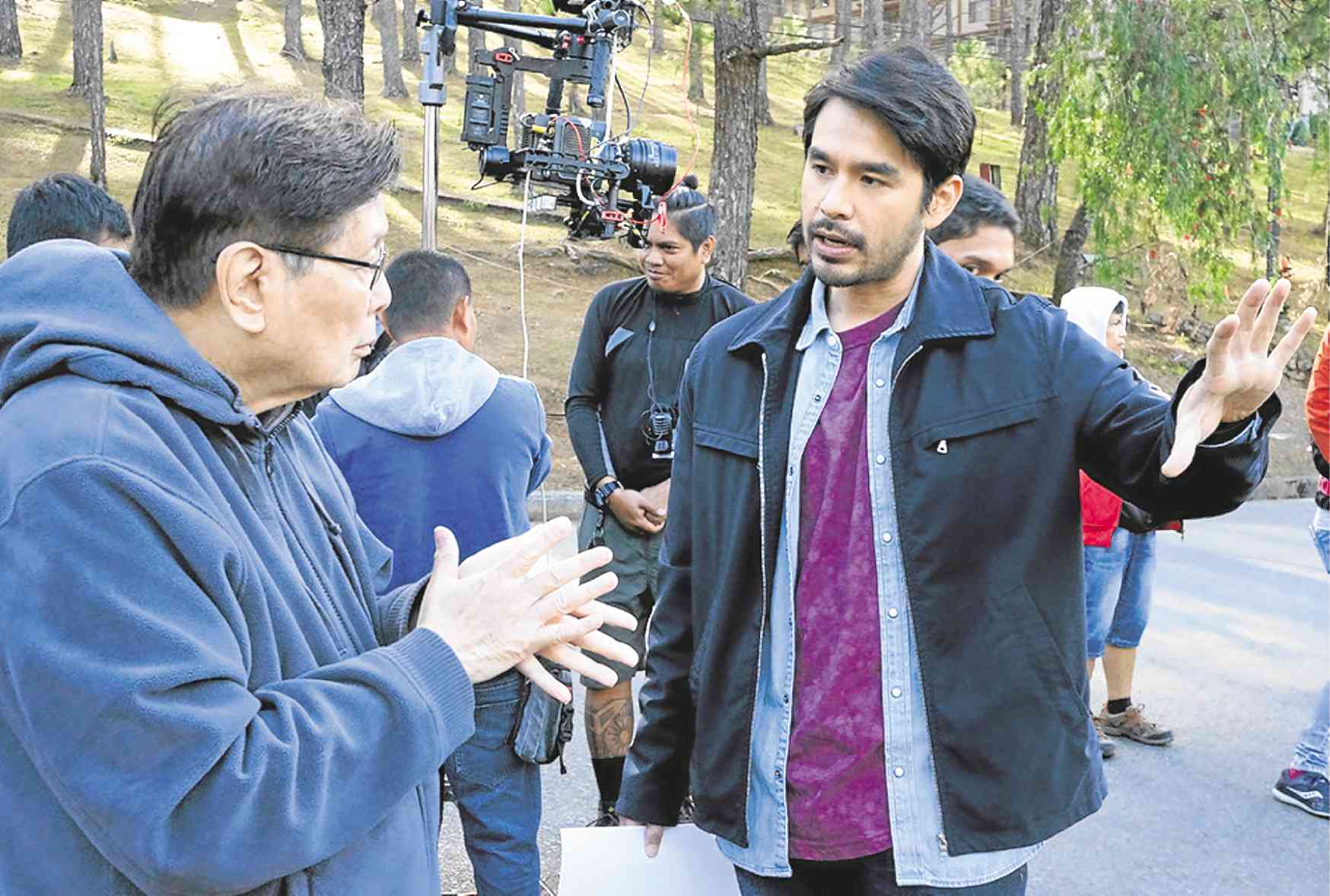8 Thoughts We Had After Watching “Citizen Jake”
May 31, 2018 • Macky Macarayan

May 31, 2018 • Macky Macarayan
Master filmmaker Mike De Leon hasn’t made a film since 1999’s “Bayaning Third World,” so for moviegoers, especially fans of his work, “Citizen Jake” is an unmissable event. We saw the film recently and we had a lot of thoughts about it. Whether you loved it or hated it, one thing is for sure— you will be talking about it.
The filmmaker is really disillusioned with what is happening in the Philippines, and relates the present political climate to the era of Martial Law under Ferdinand Marcos. Journalist Jake Herrera (Atom Araullo) is really De Leon’s mouthpiece, and the decision to have a 34 year-old character in the lead could not be more fitting, representing the younger generation who actually has the power to enact social change. As De Leon presents an array of hard truths, he eventually leaves viewers the question of “now what?”
Unlike his previous films, De Leon here makes grand pronouncements about his ideologies and comments on current events, told in Jake’s voiceovers or through dialogue from other characters. There has been criticism that since film is a visual medium, “Citizen Jake” could have used more subtlety in conveying its story, but we believe that De Leon’s decision to go all out on his politics is intentional. He really wants “Citizen Jake” to be an anti-film, blurring the line between news and narrative fiction.
CITIZEN JAKE will open in cinemas nationwide on Wednesday May 23 2018. Rated R-13, no cuts.
Another criticism, this one from a filmmaker who shall not be named here (or ever), is that De Leon is trying to say too many things in his film. While that is true, it isn’t necessarily a setback for “Citizen Jake.” The film at times feels a lot of movies in one— you have a whodunit, a romance on the rocks, a political thriller, a generational power struggle a la “The Godfather” (which the characters casually mention, by the way) and a tale of change, whether it is about the Baguio landscape or the collective forgetting of Filipinos. The crisscross of these genres might not always be smooth, but somehow the film still ends up like a whole experience, one that will hardly go away after the credits have rolled. You might need a drink or two because the issues (again, it depends whether you care or not) hit close to home.
De Leon is unafraid in throwing in the names of Marcos, Duterte and even Enrile in his examination of truth, and why should he be otherwise? If there’s anyone who could reliably lecture today’s generation about the horrors of the Marcos regime, it’s De Leon. Also, there’s a bit of shade regarding a former starlet, which is too juicy to reveal. You’ll know it when you see it.
Fans of De Leon’s canon (or was it just us that noticed) will most likely experience nostalgia upon seeing the various references to the filmmaker’s previous films (he even cast Raquel Villavicencio, his longtime collaborator, for starters). First off, the Herrera house in Baguio is also the same house where “Kung Mangarap Ka’t Magising” was shot (we can still hear Christopher De Leon hum “Umaga na naman…”). The looming machismo is perhaps from “Batch ’81,” while the male authoritarian figures recall to mind Vic Silayan’s chilling turn in “Kisapmata.” Then there’s the outrageous visual puns and punchlines, which reminds of “Kakabakaba Ka Ba?,” and the historical revisionism which is one of the themes of “Bayaning Third World.” Meanwhile, the class struggle and activism is obviously “Sister Stella L.”
We get it. De Leon chose Araullo for the role of a journalist because it complemented his meta approach to the narrative, and while the first-time actor nails the portrayal of Jake Herrera most of the time, it is in those quiet moments, where nonverbal acting is required, in which he falters. But De Leon has surrounded Araullo with such a talented cast that ranged from Cherie Gil to Nonie Buencamino to Lou Veloso (who is absolutely magnificent here), that we can easily forgive the shortcomings. For his first foray into acting, it was not an earth-shattering turn, yet Araullo wasn’t totally bad either.
This is also one of the most thrilling aspects of watching “Citizen Jake,” to see De Leon employ the tricks he learned in his years of filmmaking. The basics are all here, how precise editing can be used in withholding information, how production design can be used to highlight the traits of the characters, and how camera movement can be indicative of a character’s state of mind. We haven’t even mentioned De Leon’s knowledge of semiotics, and how he complements his overt statements with symbolisms.
If you liked the film, a repeat is likely, if only to study all the nitty gritty of the story. This might very well be a film that gets better with time. It is campy, and angry, and thrilling all at the same time, and it is okay. Comparisons with the best of De Leon’s works, such as “Batch ‘81” or “Kisapmata” are inevitable, but isn’t that one of the reasons why we love movies in the first place, to further the discussion?
What are did you think of the movie? Tell us below!
Input your search keywords and press Enter.
